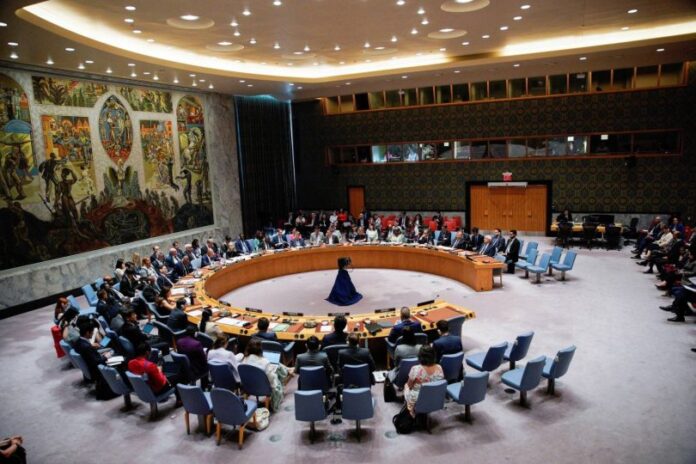The United Nations Security Council approved, by a majority of its members, a resolution extending the mandate of the United Nations Peacekeeping Mission in South Sudan (UNMISS) until April 30, 2026. Twelve countries voted in favor of the resolution, which was proposed by the United States, while three countries-China, Pakistan, and the Russian Federation-abstained from voting. This decision reflects the international community’s commitment to supporting peace efforts in a region suffering from ongoing conflict.
Under Resolution 2779, the mission’s mandate is designed to advance a multi-year strategic vision aimed at preventing a return to civil war and the escalation of violence in South Sudan. The mission also seeks to address fundamental gaps that hinder the building of lasting peace at both the local and national levels. Its tasks include protecting civilians, creating conditions conducive to the delivery of humanitarian aid, supporting peace efforts, and monitoring, investigating, and reporting on serious violations of international humanitarian law and human rights.
In his latest briefing to the Security Council, UNMISS head Nicholas Haysom warned that the outbreak of a new war would be a significant threat that South Sudan cannot bear. He emphasized the importance of using all necessary means to fulfill the mission’s tasks and stressed the need for the Secretary-General to inform the Security Council of any obstacles to implementing these tasks. Haysom also highlighted the importance of prioritizing the protection of civilians in all decisions regarding the use of available capabilities and resources.
He added that there has been a significant deterioration in political and security conditions, which could undermine the gains made in peace so far. Haysom noted that he had previously warned of rising tensions among the main parties to the peace agreement, adding: “These tensions have now turned into direct military conflict, leading to heightened tensions across the country”.
The war in South Sudan broke out in 2013 between forces loyal to President Salva Kiir and those supporting his former deputy Riek Machar, and ended with a peace agreement signed in 2018


